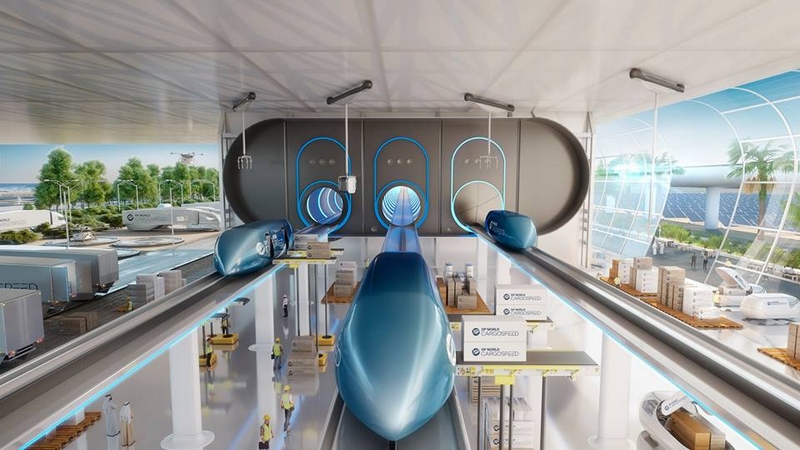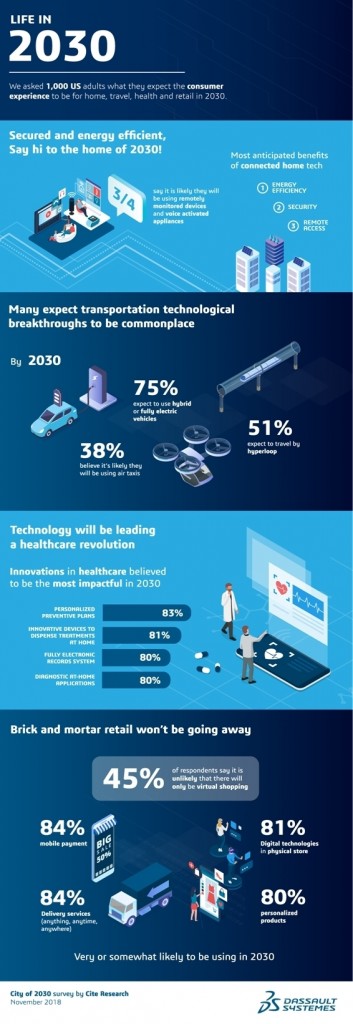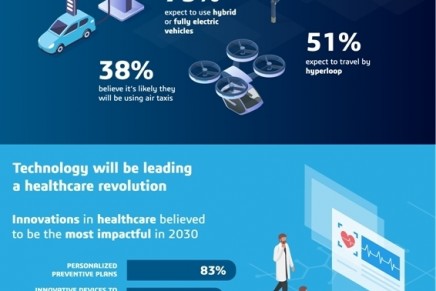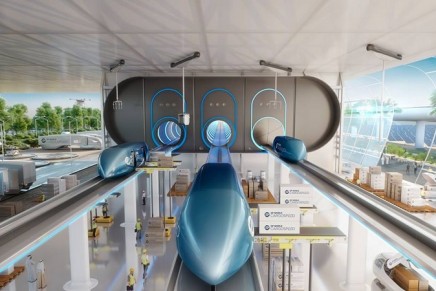Life in 2030: Consumers expect massive change in every aspect of their lives. .
An insight into consumer expectations for future experiences in home, transportation, health and retail. Survey.
Dassault Systèmes revealed that consumers expect that cities in 2030 will be filled with technology that improves overall quality of life, delivers socially-conscious benefits and personalizes experiences. The findings came from a survey of citizens representing the demographics of U.S. adults that was conducted in partnership with independent market research firm CITE Research. “Life in 2030” survey confirms personalized initiatives as the dominating theme behind all innovation.
Personalized experiences are seen as the primary benefit of advancing technologies, particularly among millennials. Among 18-34 year olds, technology is expected to deliver experiences that are customized to their own personal needs and tastes;respondents over the age of 35 expect technology advancements to provide primarily a better quality of life.
The home of 2030 will be secure and energy efficient.
More than 70 percent of respondents will use remotely monitored devices, voice-activated assistants and fully-connected smart home systems. Forty-nine percent expect to use a virtual personalized home assistant or robot.
Transportation and mobility is expected to become increasingly electric and connected, improving cost savings, travel time, road safety and quality of life. More than 70 percent of respondents expect to use hybrid or fully electric vehicles, while over half expect to travel by hyperloop. Thirty-eight percent expect to be using air taxis. More than 75 percent expect personalized passenger experiences such as navigation path optimization and city-controlled traffic regulation, however the majority expects not to allow access to personal data in order to improve such services.
Personalized preventative health and home treatments will become the norm. More than 80 percent of respondents expect to prevent disease and live longer because technology will enable them to manage their personal health more easily and effectively, with 83 percent expecting preventive plans based on behavior or nutrition to be the most impactful, 81 percent devices to dispense treatments at home, and 80 percent fully electronic record systems. Three-quarters of respondents feel that technologies such as diagnostic at home applications, wearable devices and custom-made prosthesis orthopedics will also be impactful.
Brick-and-mortar stores are not going away, but the in-store experience will evolve around payments and the use of in-store technologies. In retail, 84 percent of respondents expect to use mobile payments and anytime/anywhere delivery to make shopping more convenient, but 55 percent feel that it is unlikely there will only be virtual shopping in 2030.





